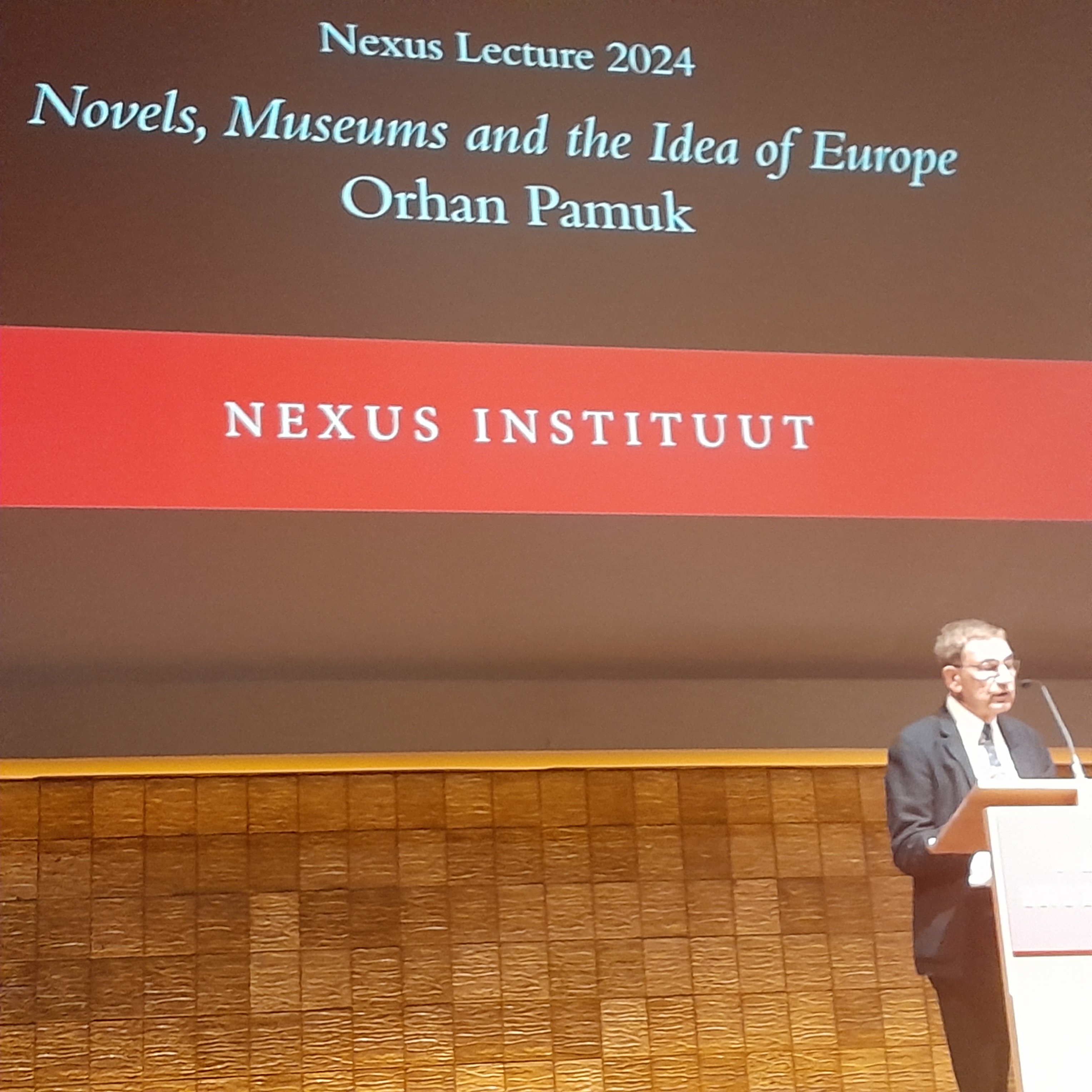
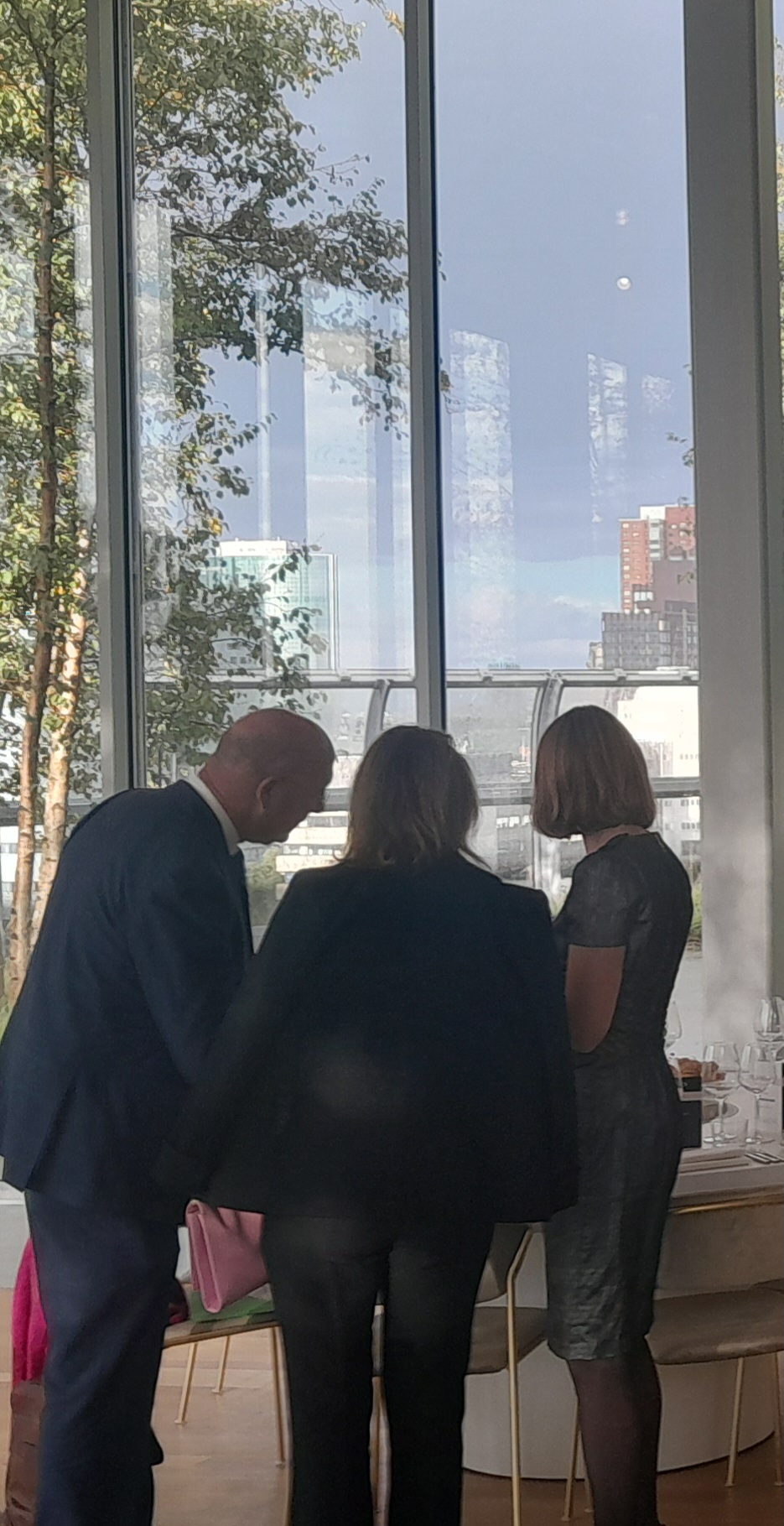
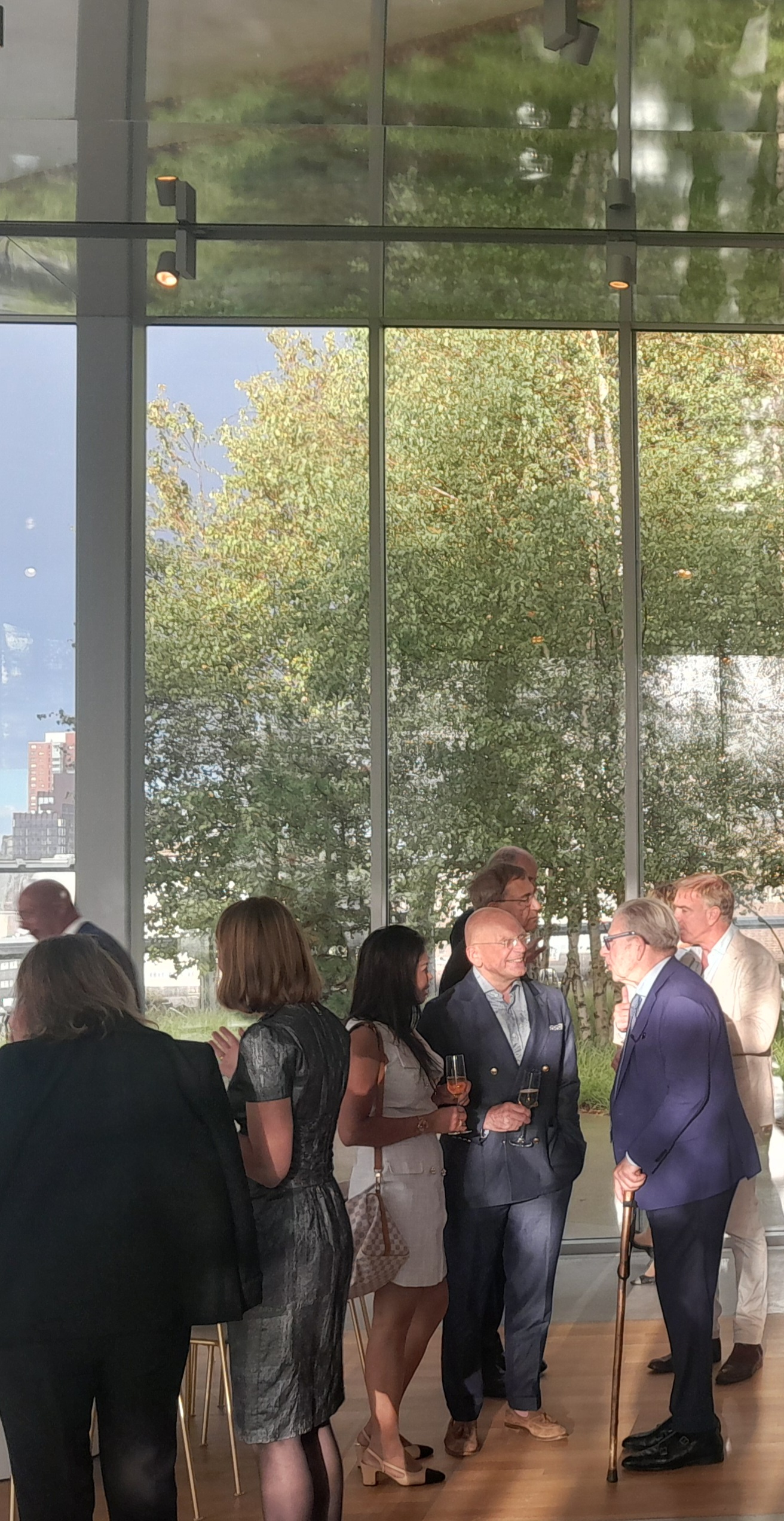
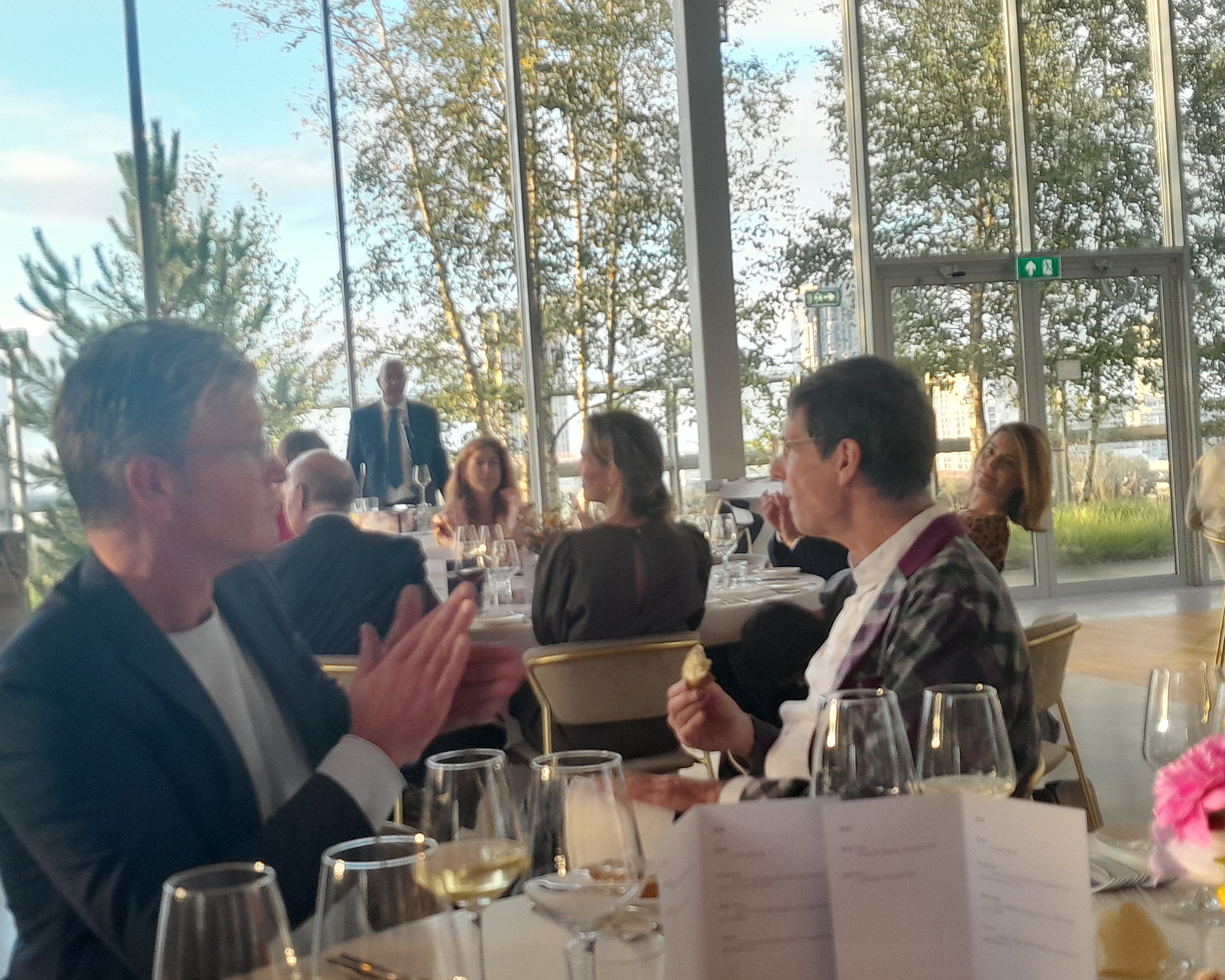
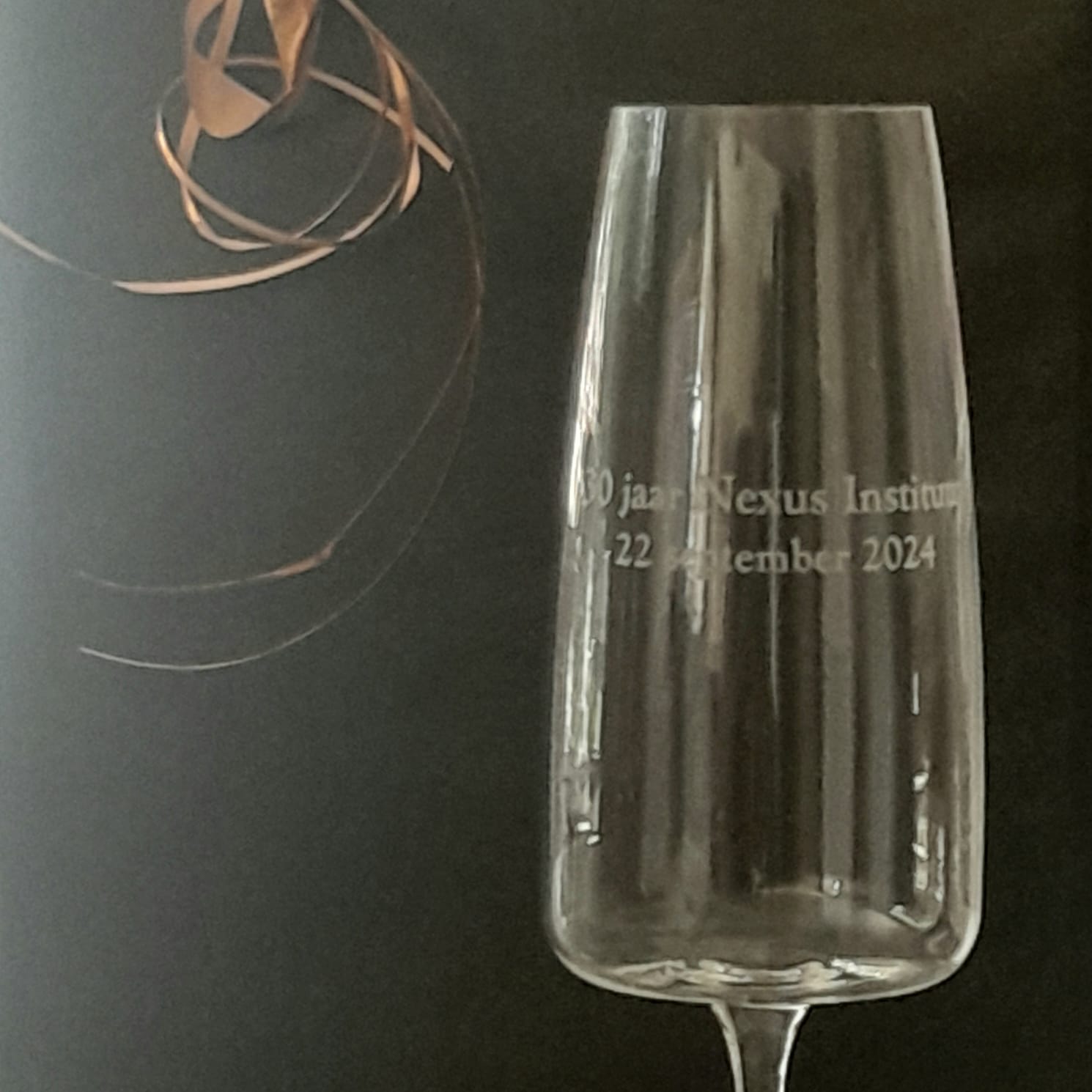
|
The NEXUS Institute, founded in 1994 by Rob Riemen, brings together the world’s foremost intellectuals, artists and politicians and has them think and talk about the questions that really matter.
How are we to live?
How can we shape our future? Can we learn from our past? Which values and ideas are important, and what are their premises?
|
| In doing so, the Nexus Institute places itself at the very centre of the Western cultural and philosophical debate. In the best European humanist tradition, its annual Conferences and Lectures, open to all and visited by over a thousand people, have become a platform for informed intellectual debate on pressing contemporary issues. The same spirit of tolerance and erudition is upheld in the Nexus Symposia, Masterclasses and publications. The institute was established 9 September 1994. 25 Years later, during the Nexus Symposium "The Magic Mountain Revisited" and the speakers dinner afterwards, attention was given to this. January 2021, it will be celebrated that 30 years ago the journal Nexus began (Nexus 1, 'In den beginne').
This issue started with the following quotation, to which the 'Chaque homme assez fortuné pour bénéficier plus ou moins de ce legs de culture me paraissait chargé d'un fidéicommis à l'égard du genre humain.' (I believe that everyone who has the good fortune to draw some benefit from that cultural heritage has an obligation to pass it on to humanity). (Marguerite Yourcenar) |
| A Brief History Activities Publications Memberships Since 1991 |
NEXUS 20 yrs -> |
 |
At the same day, NEXUS also celebrated its 30th anniversary with a dinner: |  |
 |
 |
the evening before the lecture, Orhan Pamuk and his wife offered a toast to celebrate the 30th anniversary |  |
The Nexus Library series of carefully produced, bound books features important texts on cultural philosophy which have not been translated into Dutch before. Various books were published in Dutch as well as English. From 1994 onwards, the Nexus Institute has been organizing lectures, conferences, symposiums and masterclasses, promoting international debate on artistic, philosophical and cultural themes, with the humanist tradition as its vantage point, yet allowing different voices to speak up'.
In 2009, Rob Riemen published already "The Nobility of Spirit". For the cultural philosopher and co-founder of the Nexus Institute, it is high time that Mann's forgotten humanist ideal, nobility of spirit, be remembered. It is the role of this ideal in defending civilisation and culture against barbarism that Riemen's short but wide-ranging book seeks to elucidate. We know this because George Steiner tells us so in his foreword: Riemen's intent might otherwise have been difficult to pin down amid the mish-mash of anecdotes and abstractions, polemics and conversations (real, fictional and fictionalised) that make up this collection of three essays and a prelude. To mark the 25th anniversary of the magazine Nexus Riemen published 30 November 2015 "The return of Europa". The European Union is not Europe. It is an economic union, a bureaucracy lost in its capitalist values, where the European soul is disappeared and numerous ghosts of a destructive past enter. |
|
Europe, however, is the now widely forgotten princess abducted by Zeus disguised as a bull, drowned as man ashore on Crete where she became the proud mother standing at the cradle of a great humanist ideal of civilization, sang by thinkers and poets, achieved by brave decisively people, representing a world of truth and justice fought on the tyranny of power, wealth and stupidity.
It is a publication of a dozen classic speeches from among others Victor Hugo, Robert Musil, Joseph Roth, Stephen Spender and Robert Schuman - which can lead us as Ariadne's thread from a dead Union. At the same time, because of the critical dialogue, contemporary thinkers and poets - including Colm Tóibín, Timothy Garton Ash, Ivan Krastev, Adam Zagajewski († 21 March 2021) , Javier Marías, Philipp Blom and Placido Domingo - were asked to reflect on the nexus between past, present and future. Nexus 70 is a polyphonic song of Orpheus; full of hope, insight, wisdom and trust, so that princess Europe returns from oblivion and, after her tears about the wrongs that have dried committed in her name, aware of her own actions in the past, wants to fight again for achieving her dream: a civilization in which every person will live in dignity and with pride will say: 'I am European!, Je suis Européen!" September 9, 2019, the NEXUS Institute was founded. The 25st anniversary was celebrated during the Symposium 'The Magic Mountain Revisited', a symposium based on the novel of Thomas Mann, which is no less than a timeless document of European humanism and which point us the way to a new confidence in life, increases our awareness of everything that really matters, and our responsibility in all of this. And it is precisely this that is the essence of all Bildung, of all spiritual education. |
|
NEXUS CONNECT for 30 years olds and younger was launched 16 March 2012 for young people who are looking for depth, reflection and Bildung and who feel at home at the Nexus Institute. As a member of Connect, you meet Nexus speakers at the Institute’s activities and you are regularly invited to meetings and receptions. Prior to every activity, Rob Riemen, founder and president of the Nexus Institute, gives an introduction to the theme and the speakers. See also the brochure.
A brief summary of the reportage by the Dutch daily paper Trouw: 'In the Faculty club in Tilburg about 30 students listened to Rob Riemen, who did not spare the rod about the Dutch society. Riemen denounces the 'destructive utility thinking' in the universities, the erosion of the humanities. Rob Riemen stood in 1994 at the cradle of the Nexus institute, that presents itself as the guardian of European cultural heritage. Nexus goes for culture with a capital c. It is a counterpoint to smallness of mind. "Annually the cream of the international intellectual elite pass, with such greats as Robert Hughes († 6-8-2012), George Steiner, Claudio Magris and Jürgen Habermas. And now Riemen also established a youth club. "You really have to become a group. Congenials" said Riemen. "We want to offer you a piece of spiritual resilience. Your generation can change this country". |
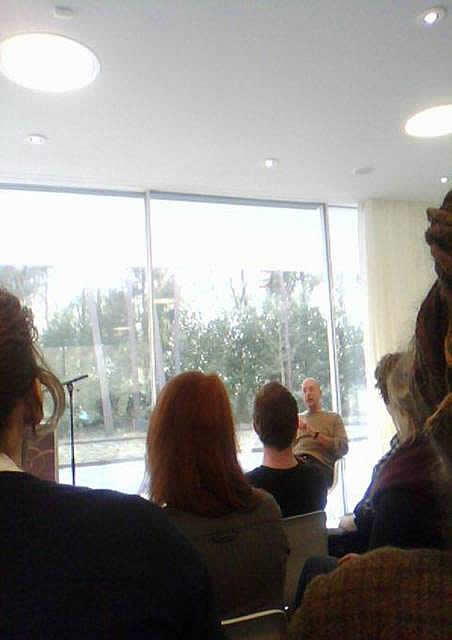 |
"You want make a kind of elite of us?" asks one of the younger in the audience.Whàt is it strange that we accept the elite model in the financial world, in sport, in business without grumbling- but not when it comes to culture" answers Riemen. "While culture is always going for the best, for what is truly valuable. So yes, we want to be elitist. But it is not elitism based on class or race. Anyone who wants to learn is welcome. You simply can not sustain democracy without a group of people who is interested in ideas. Imagine a society that has no longer quality. What does disappear then? Art, humor, taste. And the end point is a large gray gray mass.
During drinks after completing the lecture, agreement took place on the tirade about destructive utility thinking in the universities, whose cause is mainly in politics. The students are yearning for meaning, interpretation, and criticism. That is missing not only in education but also in the media'. |
| HOW IT (NEXUS) STARTED
From: Georges Steiner, The Idea of Europe, Nexus Institute 2004, pp. 8 and 9. Introduction by Rob Riemen. |
The very first issue of Nexus (1, 1991) started with the following quotation, to which we to this day subscribe: (I believe that everyone who has the good fortune to draw some benefit from that cultural heritage has an obligation to pass it on to humanity). |